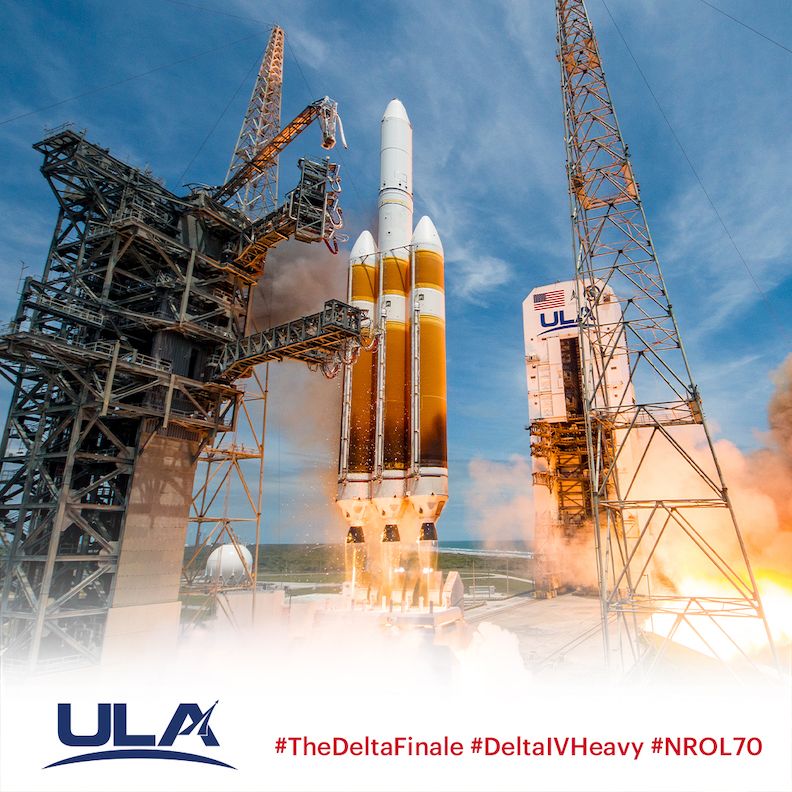ULA Launches Final Delta ‘Heavy’ Rocket After 64 Years of Service
(Cape Canaveral, Florida) United Launch Alliance (ULA) launched its last-ever Delta rocket today (April 9th) carrying NROL-70, a classified payload for the U.S. National Reconnaissance Office (NRO), from Space Launch Complex 37 (SLC-37) at Cape Canaveral Space Force Station in Florida at 12:53pm EDT (1653 GMT) - the rocket literally set itself on fire for the 16th and final time.

A photo of this afternoon's (Apr. 9) launch of United Launch Alliance's (ULA) Delta rocket, which marked the end of ULA's Delta rocket program, courtesy of United Launch Alliance (ULA).
"It is a bittersweet moment for us," said Tory Bruno, chief executive officer of United Launch Alliance, in a call with reporters on March 26, according to Space.com. "It is such an amazing piece of technology — 23 stories tall, hall a million gallons of propellant, two and a quarter million pounds of thrust and the most metal of all rockets, setting itself on fire before it goes to space."
The spectacle of the Delta rocket “setting itself on fire,” which was specific to the Delta IV in its heaviest configuration, was the result of hydrogen building up in the flame trench and subsequently rising up alongside the rocket after it was used to cool down the three RS-68A engines to cryogenic temperatures, according to Space.com.
Earlier today, the rocket's two boosters were jettisoned about four minutes into the flight, followed by the core, or first stage, separating one minute and 45 seconds later, per Space.com. A single RL10C-2-1 engine on the Delta cryogenic second stage then took over, propelling the NROL-70 payload into space; due to national security concerns, coverage of the launch ceased following fairing jettison at about six minutes and 40 seconds into the flight.
ULA is retiring the Delta IV, and eventually its other legacy rocket, the Atlas V, in favor of its newly introduced Vulcan, which flew a "near-perfect first mission" in January of this year, according to Space.com. The Vulcan was developed to replace both long-flying rockets in all of their configurations.
In addition to marking the 16th Delta IV Heavy launch, today’s launch also marked the 45th liftoff of a Delta IV, the 35th Delta IV to fly from Florida and the 389th Delta launch of any kind since 1960 (of which 294 were sent skyward from Cape Canaveral), according to Space.com.
Half of all past Delta IV Heavy launches were devoted to sending NRO payloads into orbit; the rocket and its less powerful configurations were also used in support of NASA, NOAA (the U.S. National Oceanic and Atmospheric Administration), U.S. Air Force and commercial payloads, according to Space.com.
